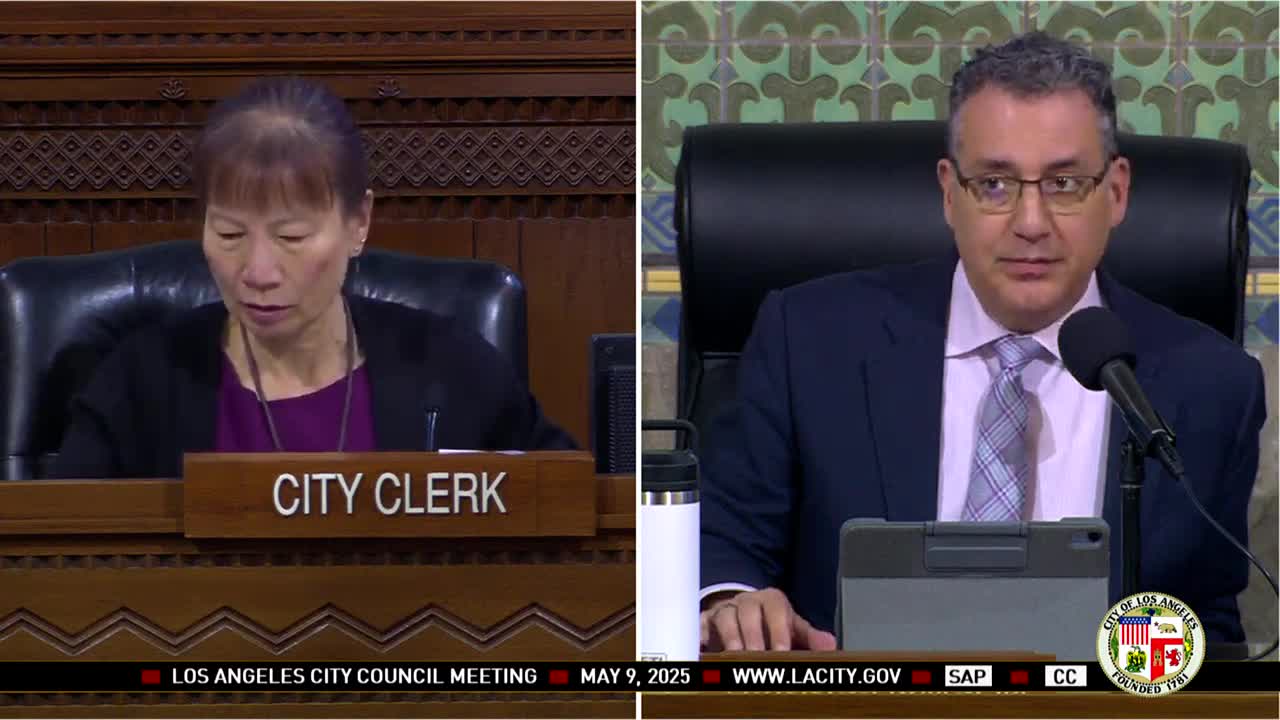Article not found
This article is no longer available. But don't worry—we've gathered other articles that discuss the same topic.
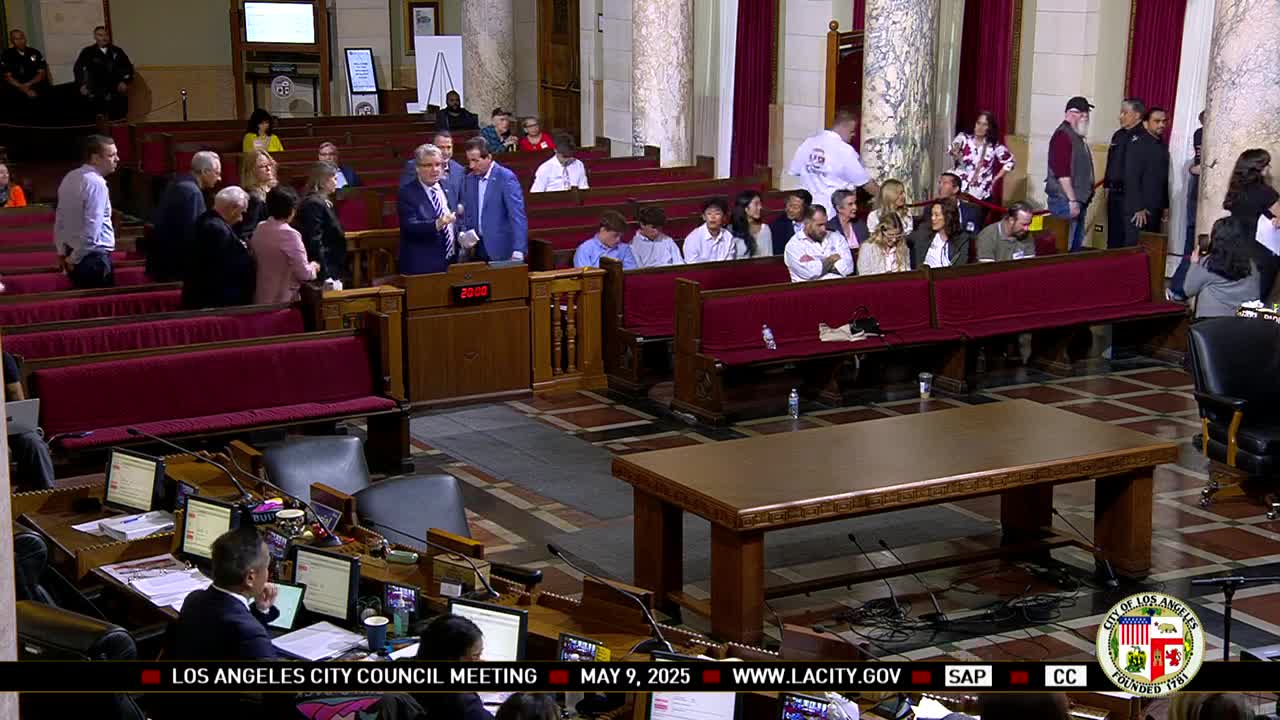
City kicks off Croatian American Heritage Month with consular delegation and events in San Pedro

Council honors Chicano Hollywood collective and urges authentic Mexican-American storytelling
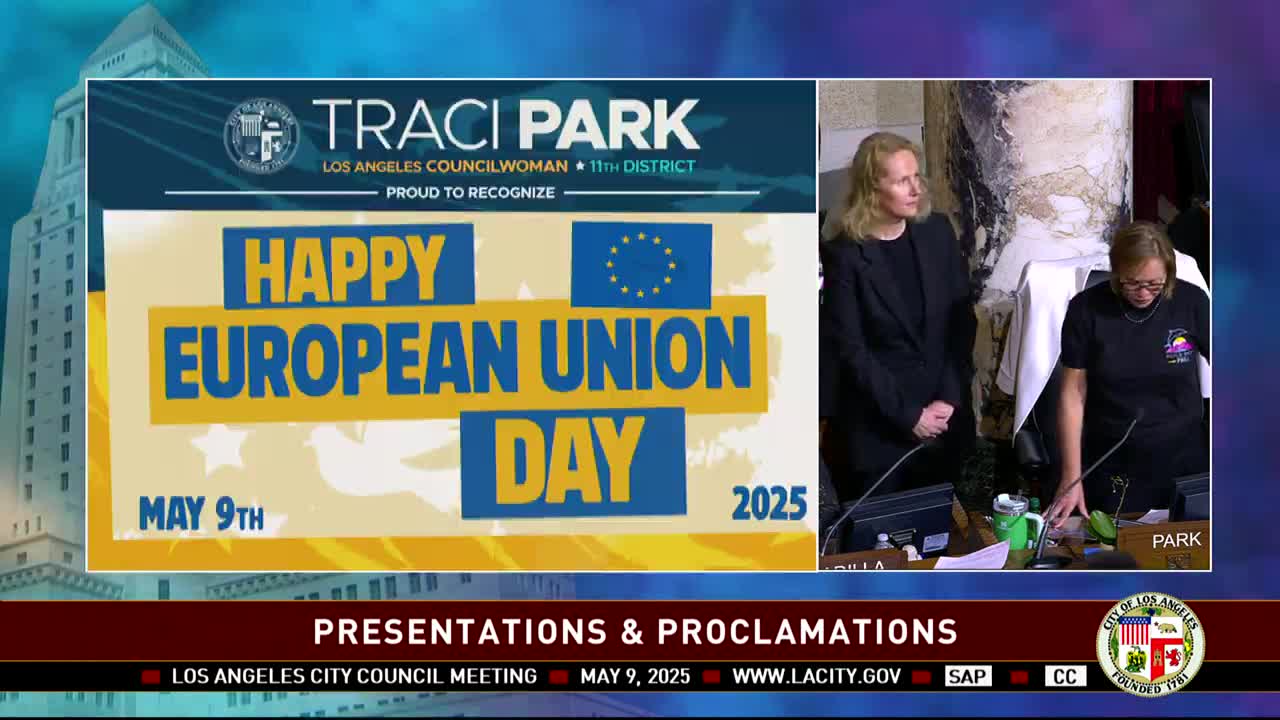
City's Department on Disability outlines access work ahead of major events

Council recognizes Operation HOPE; council office and nonprofit to provide $1.2 million for small-business scholarships in CD10

Groundbreaking held for Griffith Park performing arts center at old zoo site

Workers press council for Olympic wage; commenters urge keeping crossing guards and reinspection of Produce Hotel
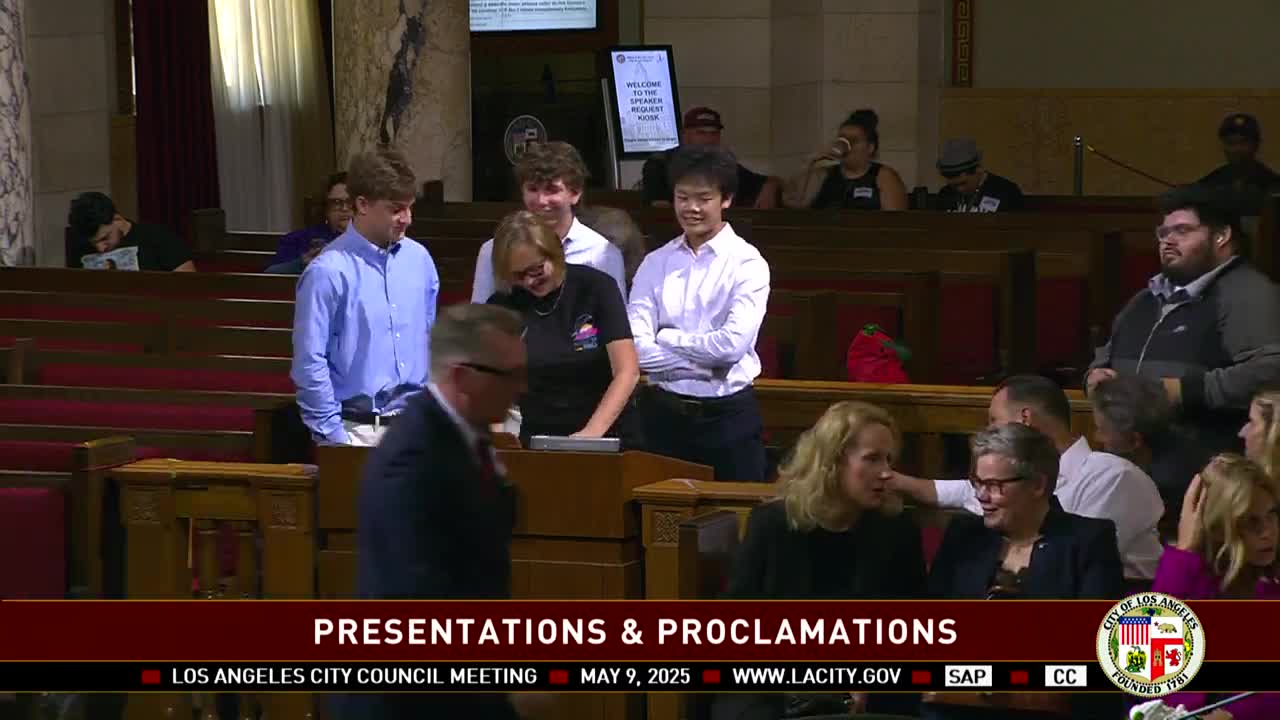
Teen-led Build Back Pali raises more than $100,000 to help Pacific Palisades businesses
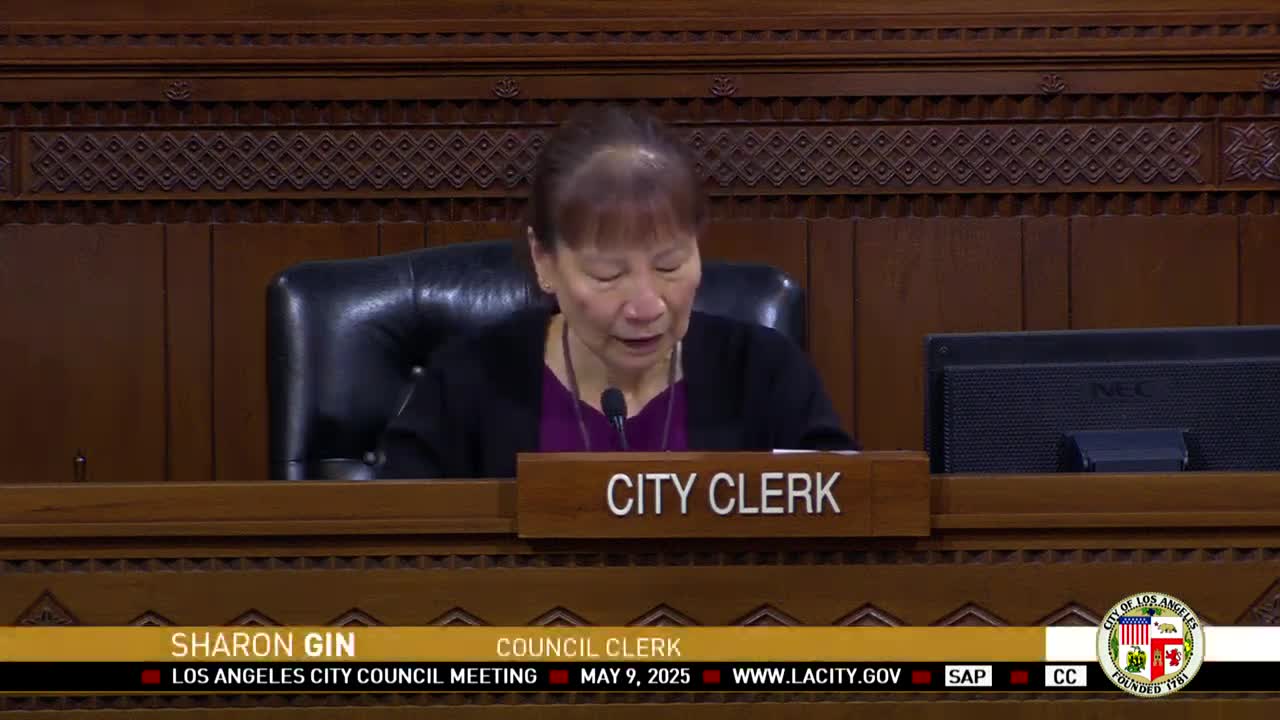
Votes at a glance: council approves several items, leaves affordable-housing bond on desk
